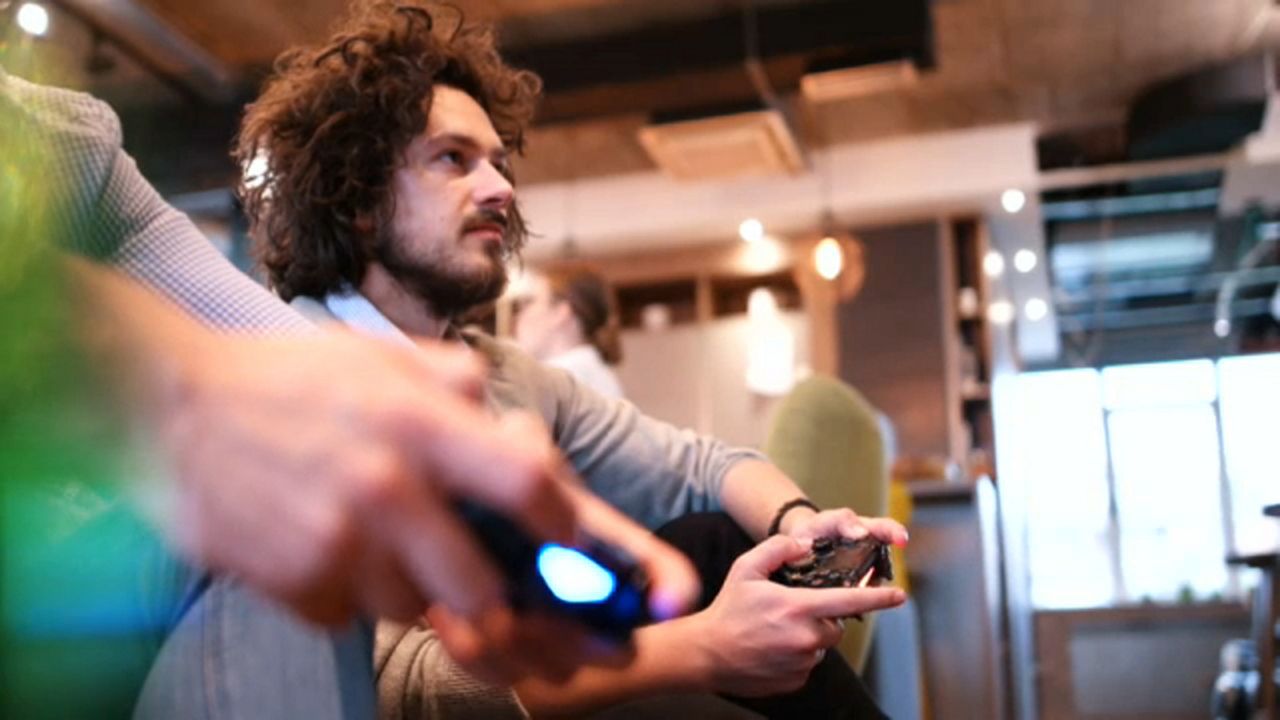Editor’s note: Second of a three-part series on the effects of the playing video games at a high volume, and how one Wisconsin man overcame his addiction and is now thriving.
APPLETON, Wis. — There was no blame game. It was off the table.
West Bend’s Adam Holman, who nearly flunked out of college because of his addiction to video games, had always felt like he was in a courtroom being judged. He was always the guilty party. He was supposed to just admit it. And fix it.
But he wouldn’t admit it and couldn’t fix it. He didn’t know how.
Holman’s second year of college ended with him dropping all of classes and a GPA under 2.0. He tried to re-enroll, but the administrators at UW-Fond du Lac told him, 'No.' They put him on academic suspension. He appealed, and part of that process was meeting with a school counselor.
“It was like a switch in questioning,” Holman said. “The way the counselor spoke to me about it helped. I could tell they weren’t judging me or blaming me for having a hard time. They legitimately were trying to understand why I was having a hard time, which isn’t something I had experienced before."
“I had always been asked ‘Why?’ in kind of an accusatory, or judgmental way. Being told that I’m addicted to video games, and that’s the problem, caused such a problem for me. As opposed to the difference in questioning of, ‘What is the reason that you’re choosing to play video games so much?’ I just started thinking about it in a different way instead of defending myself. It helped me to understand myself and once I saw that, it was easy for me to change.”
It was a process, but he could re-enroll and experienced success for the first time as a college student. Then he transferred to UW-Oshkosh. He entered the social-work program and one semester later, for the time in his life, finished with a 4.0 GPA.
Three semesters later, he piled up three more 4.0 semesters and graduated summa cum laude in 2015.
“Two years later, when I got my report card and so, I have the 4.0, I had this cathartic, tearful release of like, ‘Oh, I’m actually capable of this. It’s not just a fluke that I managed to pull this off multiple semesters in a row.’"
“It finally sunk in that I’m capable of completing things and doing well and, gosh, it was so relieving. I still remember the feeling of just relief and just cried on my way home. It was wild.”
‘You can do both'
Holman knew he wanted to get a master’s degree in social work at the University of Wisconsin. He wanted to be a social worker, but also thought about the mental health field and working as a therapist.
He told his professor he just wanted to be a social worker first to see how that goes.
“And that professor basically said, ‘Why not both? Why not both at the same time?’ said Holman. “And once I started practicing therapy, it became obvious to me that’s what I wanted to do. I just enjoyed it so much. Because of my own experiences of dealing with my own mental health, it really provided me with a lot of context and a lot of skills that would help other people get into the same place. So, after I experienced working as a therapist, I knew that this was the path for me.”
He now runs his own telehealth practice in Tempe, AZ., Main Quest Psychotherapy, which treats patients in Arizona and Wisconsin. Video game addiction is a treatment he provides, and business has been brisk.
“It’s absolutely a bigger problem than people realize,” he said, “and one that is growing and has grown with much more intensity since the pandemic.”
But resources for help are limited.
“Because it’s so new, and the training has not kept up with the technology,” said Dr. Mike Bishop, a psychologist who operates Summerland Camps, the first residential treatment program designed to treat video game and screen addiction in children and adolescents.
“I went to graduate school in the 90s. You think about what video games existed in 90s. It just wasn’t on the radar.”
Holman sees the same issue.
“So when I talk to providers around me, there’s just so few of them that feel like they even have the knowledge to provide the treatment.”
Holman believes there are two reasons preventing providers from keeping pace with the growing need.
The American Psychiatric Association’s Diagnostic and Statistical Manual of Mental Disorders (DSM-5-TR) does not consider video game addiction a diagnosable disorder.
“Which means it’s not treatable under insurance,” Holman said. “And if it’s not treatable under insurance, and it’s not a condition that’s diagnosable, often, there is not a lot of weight put behind it.”
The second, frankly, is there are bigger priorities.
“There’s been acknowledgement that this is a problem, and a growing problem,” Holman said. “But the focus is more on the biggest concern right now in the addiction world, which is opioids. And, I think, one of the other things that makes it less urgent is that, while video game use definitely impacts people’s lives and very negatively, it doesn’t have the same lethality as a lot of other addictions. That, I think, causes it to not be as prioritized.”
Story idea? You can reach Mike Woods at 920-246-6321 or at: michael.t.woods1@charter.com



